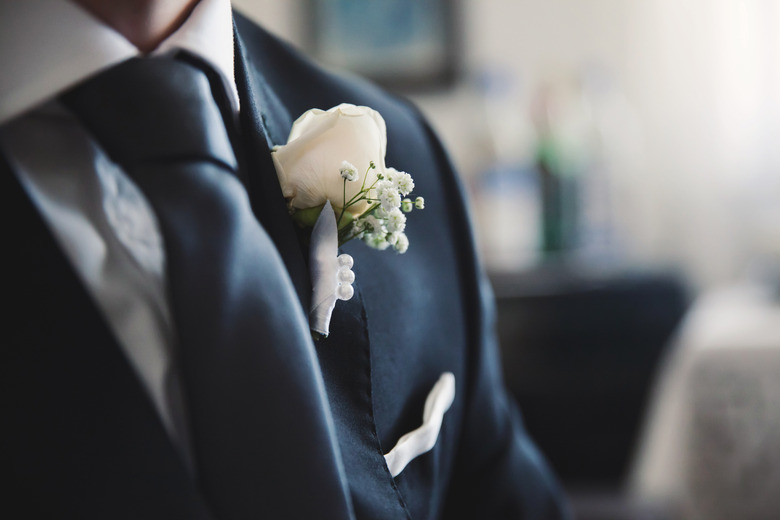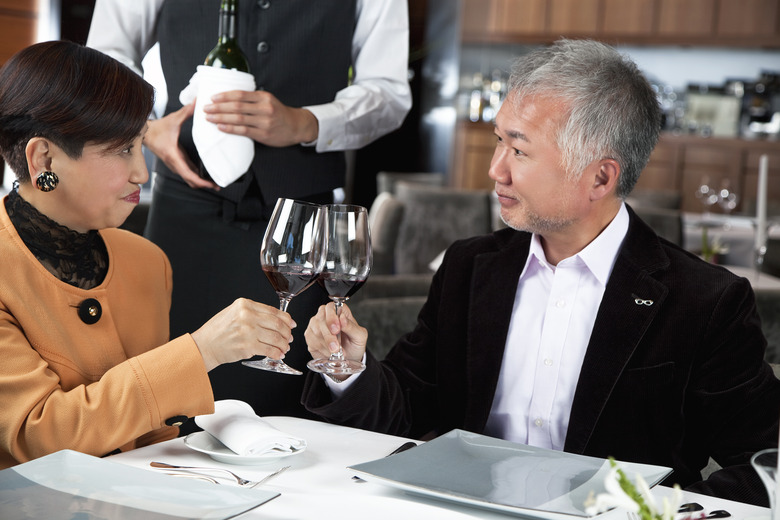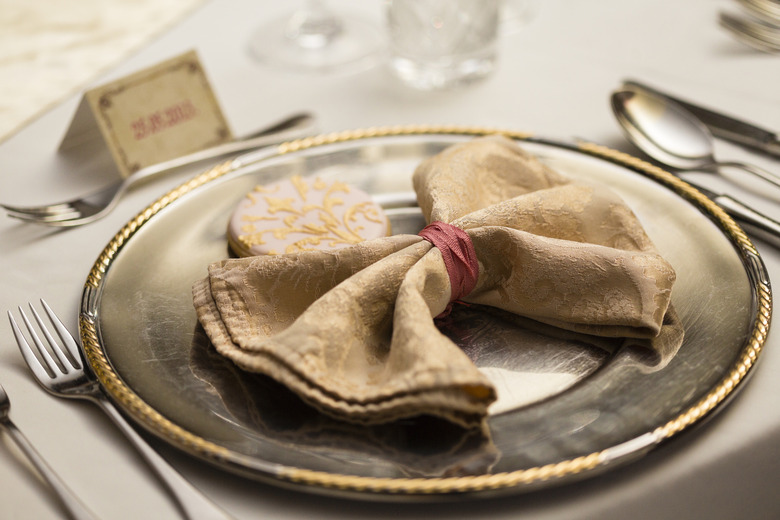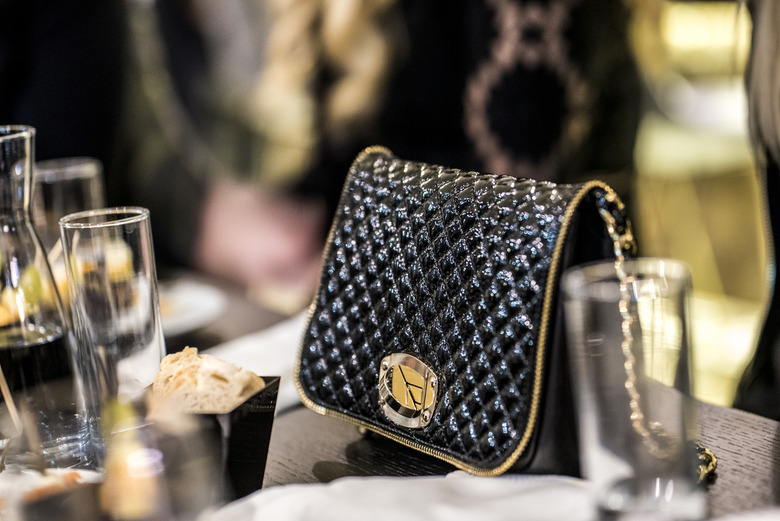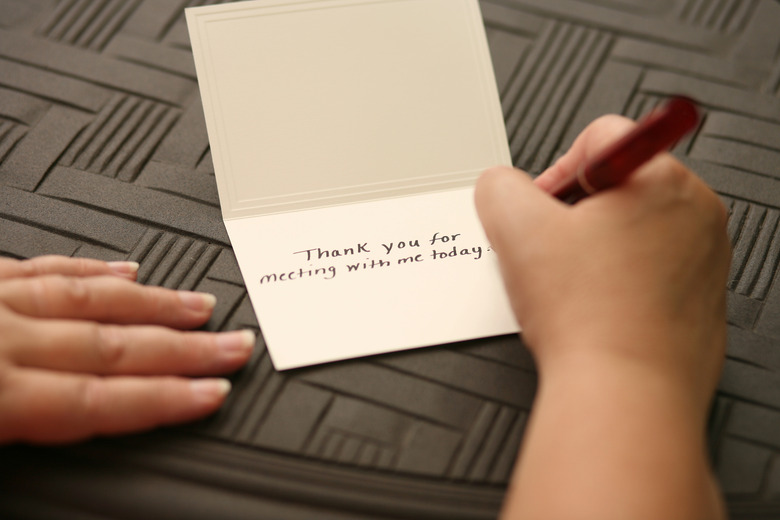Old Etiquette Rules We Need To Bring Back
There are a lot of ways that etiquette has changed, and it isn't always for the better. While we are grateful that we don't have to wait three days before calling a date, there are some ways that things were just better and more civil in the past. You know, the good ol' days when people were kind with each other and knew how to talk on the phone. In an increasingly casual society, it's still good to know some basic rules of etiquette and some of these old-school rules of etiquette that really need to come back.
Answer the phone with a proper greeting
Even though a lot of conversations these days are held via typed electronic communication, it's still good to know proper phone etiquette. And the first rule of phone etiquette is that you shouldn't just casually say "What's up?" or "Talk to me" when you pick up. Even in an office environment, don't say your name; the proper thing to do is just say a simple greeting: "Hello."
RSVP as soon as possible
Your life is busy, and everyone understands that. But when you receive an invitation, you technically have just 24 hours to RSVP. Planning events is expensive, and hosts need accurate counts as soon as possible. If you have to wait to RSVP because of a work schedule or family schedule, let the host know you received the invite as soon as you get it and give them an official "yes" or "no" as soon as you can. Oh, and no matter what you do, don't just bring a random friend as your plus-one.
Follow directions on an invitation
If you're attending a wedding and it says to wear formal attire, follow that dress code. The first step in learning how to be the best party guest ever is to follow the directions of an invitation and be an active participant at any given event. That means you should bring a delicious dish to the potluck, bring your swimsuit and towel to a pool party and rock your cutest food costume at the Halloween party.
Never arrive empty-handed
The only invitation request you can ignore: No gifts, please. Whether you're watching the game at a friend's house or attending a formal dinner party, bring a little something to say you appreciate being included, be it a six-pack or a batch of cupcakes.
Whoever extends an invitation should pay
There are a lot of ways that dating has changed since you were a teen, and one of them is that the man doesn't always have to pick up the tab. In fact, you know who should pay on a date? Whoever invited the other person out. If your new girlfriend asks you to see the latest rom-com in theaters, it should be on her to buy the movie tickets and popcorn. It's the 21st century, everyone can chip in for a good time.
Dress appropriately for the situation you are in
You never want to be overdressed; wearing a ballgown to a backyard barbecue would be silly. That means that wearing jeans and cowboy boots to a formal wedding would be pretty rude, too. If you have any questions on what you should (or shouldn't) wear, just ask your host! And no matter what you do, avoid wearing white at a wedding. It also may be a good idea to never do these rude things at a wedding, either.
Stand when being introduced
It's easy to stay seated when you meet a new co-worker at the office or when a friend joins you at the dinner table. But the most polite way to greet and introduce yourself to someone is to stand up and greet them with a warm smile, your first and last name and a handshake. Standing when you meet somebody for the first time shows that you have a warm personality and are eager to engage in conversation.
When you’re with a person, give them your full attention
If you can help it, resist the urge to check your phone during a real-life conversation with someone. If you happen to be expecting an important call pertaining to a job or a family matter, let the person know before you start talking and only check when absolutely necessary. Nothing beats the actual bond of an in-person conversation, so being an active participant is one of the easiest ways to be more polite.
Don’t talk about yourself or brag
It's really easy to just talk and talk and talk — exclusively about yourself. But trying to relate every story someone else tells back to yourself or going on and on about your job and your adventures annoys everyone else around you and makes for dull conversation. Etiquette dictates you should be a good conversationalist, and it's thoughtful and polite to ask others about themselves and truly listen and ask follow-up questions. Knowing when to talk and when to listen is integral to making small talk like a pro.
Never point at someone
One rule of etiquette from around the world Americans should follow: it's a major faux pas to point using your index finger at all, let alone at another person. Why is such a seemingly innocent gesture offensive? What phrase do you hear when someone is accusing someone else of wrongdoing? They're finger-pointing. If you need to indicate a direction or another person, consider an open-handed gesture or a two-finger point.
Place your napkin on your lap when you sit at the table
Know your napkin etiquette — it's a lot more complicated than you might think. A few quick tips: Your napkin is the one on your left, be sure to put your napkin on your lap as soon as everyone is seated, and know if you need to get up in the midst of the meal to go to the bathroom that you should leave your napkin on your chair.
Don’t talk with your utensils in hand at the table
Like pointing at others, talking with your utensils in hand can feel intimidating and invasive to your fellow diners. And think about it: If you get a little animated, it could look like you're trying to stab your dining partner or like that bite of steak could fly right off your fork. Take the extra few seconds to put down your fork and knife while you chat.
Keep your belongings off the dinner table
No matter who you are or where you are, chances are you have a few personal items with you. You have a purse, a cell phone, keys and other things in your pocket and bag. But as you sit down at the table, don't place your bag or especially your phone on the table. Not only does it take up valuable real estate but it also allows for distractions. And being on your phone while chatting with other people is pretty much the rudest thing you can do.
Handwrite thank you notes and greeting cards
You can send thank you notes via email or text, and you can just sign your name to a greeting card with a pre-written message. But the best hosts, guests and friends know that a handwritten, personalized note goes a really long way. If you've received a gift, take a few minutes out of your day to write out a nice card and drop it in the mail. Knowing how (and when) to send a thank you card is one of those etiquette lessons Grandma wishes you knew.
More from The Daily Meal:
Should You Still Call a Woman 'Ma'am'? and Other Modern Etiquette Questions Answered
10 Little-Known Etiquette Rules You're Likely Breaking
21 Questions You Didn't Know Were Rude






